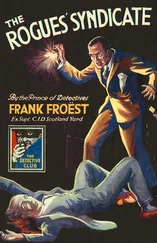Even when speculation started about intelligence on other planets, Christianity managed to keep pace. After all, wasn't God at liberty to replicate creation as often as He liked? There was nothing to say that alien life-forms had to resemble humans to be part of God's plan. Mankind was called into being as the perfect species for the specific environment created on God's Earth. Other planets had different environments, so it was reasonable to expect that alien life-forms wouldn't be the same. In any event, God created each different life-form in His image, which wasn't a contradiction, but a metaphorical turn of phrase. God's creatures didn't literally conform to His appearance, but to the vision in His mind's eye when He called them into being.
Yet there was a hitch. If it were true that the cosmos was populated with intelligent life-forms created by God, wouldn't the Son of God have come down to every planet? Wouldn't each of those alien races have sinned and been saved by the Messiah?
Naturally you could argue that a race created by God wouldn't necessarily sin. It might develop differently. An alien species on some faraway planet might adhere to God's laws and never need to be redeemed. But that was precisely the problem. In the eyes of the Lord, wouldn't a species living in accordance with His precepts be fundamentally better than humanity? Such a species would prove itself worthier of His love, and God would have to give it preference. With its history of misbehaviour, mankind would be relegated to the rank of a second-rate creation, having been flooded once already for its sins. Put more bluntly: mankind was no masterpiece. God had messed up. Having failed to prevent humans succumbing to sin, he had been forced to sacrifice His only son to expiate their guilt. Mankind gained free credit, which God paid for with Christ's blood. That wasn't the sort of decision a father would take lightly. God must have arrived at the conclusion that humanity was a mistake.
Soon scientists were postulating the existence of tens of thousands of civilisations in space. On balance, it seemed unlikely that all of those species would be paragons of virtue. Surely at least some would have fallen from grace and required a redeemer. When it came to the question of sin, Christianity knew no shades of grey, just dogma and principles. What mattered wasn't how much an individual had sinned, but that they had sinned in the first place. God didn't strike deals, so to speak. A transgression of whatever kind was always a transgression. Punishment was punishment, and redemption, redemption.
It seemed reasonable to suppose that the story of deliverance wasn't a one-off. But what if God had found alternative means for redeeming the sins of creation? Could He have developed a new method of atonement that bypassed the death of His Son? Christian doctrine was faced with a problem. Christ's death had been agonising, but necessary, because God had chosen it as the only viable path. But what if there were other paths elsewhere? What did it say about God's infallibility if He sacrificed his son to wash away the sins of creation in one world and not in all the rest? Had He regretted the Passion and sought to avoid a recurrence? Why would anyone worship a God who didn't appear to be entirely on the ball?
The fact was, Christianity could only contemplate the existence of alien civilisations if every single one experienced the Passion. Any other scenario made either God or humanity look bad. But even the guardians of Christian orthodoxy could scarcely postulate the existence of a universe bursting with innumerable Passions of Christ. What other options remained?
Mankind's singularity on Earth.
God created this planet for humans, for God's own people, whom He entrusted with the task of subduing the Earth. Even if the universe were riddled with civilisations, and other intelligent beings came down to Earth, it wouldn't change a thing. Earth belonged to mankind, and the alien species had their dominion elsewhere. At home on their planet, each of God's species was God's chosen race.
But now the last bastion has fallen. The yrr have destroyed Christianity's last remaining big claim. It's not just the supremacy of mankind that's in question: it's the nature of God's plan. But suppose we were to resign ourselves to the idea that God created two equal races on Earth: the yrr would either have had to experience the Passion or live according to God's laws. Failing that, they must have sinned without redemption – but then they should have felt the fury of God's wrath.
Needless to say, the yrr don't live within God's tenets. For reasons of biology, they break the Fifth Commandment all the time. That leaves three possible explanations: (a.) God doesn't exist: (b.) He's not in control; or (c.) He approves of the yrr – which would mean that we've been labouring under a delusion that's as ancient as mankind. We weren't the ones who were chosen after all.
These are the kind of paroxysms that are shaking Christianity – not to mention Judaism and Islam. Each religion is trying to define, analyse and interpret what has happened, yet at the same time their very basis is collapsing, taking with it our crumbling economies, which relied on God's capital more heavily than we thought. At the same time, Buddhism and Hinduism, whose teachings have always accepted man's co-existence with other life-forms, are attracting people in their droves. Esoteric practices are booming, new religious movements are emerging, and traditional tribal religions are flourishing. Of all the old sects Mormonism is proving the most resilient, for the Mormon God provides for many different worlds. But even the Mormons can't explain why God raised two children within the same nursery.
In one recent development, a Catholic bishop has set sail with a delegation from Rome, sprinkling the waves with holy water and ordering the devil to depart. It's extraordinary: the very species that has systematically scorned God's principles and defiled His creation sends a so-called representative of the faith to take the enemy to task. We've got the cheek to cast ourselves as the prosecuting counsel for a Creator whose instructions we ignored. It's as though we're trying to preach the Gospel to our Maker in the hope that He might spare us.
The world is collapsing.
The UN has revoked the United States of America's leadership mandate. A futile gesture. Anarchy has broken out in many states. Wherever you turn, marauding masses are roaming the Earth. Armed conflicts are spreading. The weak are attacking the weaker. As creatures of animal instinct, it's not in our nature to take pity on others. Those who stumble are preyed on, and the plunder continues unchecked. The yrr didn't merely destroy our cities: they laid waste to us internally. We roam the Earth with nothing to believe in, abandoned savage children in search of a new beginning, but regressing all the time.
Yet there is also hope, the first signs that we're starting to reevaluate the role of mankind on this planet. People are learning to grasp the diversity of nature, to understand its unifying principles and to sweep away the hierarchies and see the real connections. After all, the connections are what are keeping us alive. Has mankind ever considered the psychological impact of an impoverished planet on future generations? For all we know, the health of our psyche may depend on the existence of other animal species. Our minds yearn for forests, coral reefs, seas full of fish, fresh air, clean rivers and oceans. If we continue to damage the Earth and destroy the diversity of nature, we'll he destroying a complex system that we can't explain, let alone replace. What mankind separates can never be rejoined. Is there any part of the vast web of nature that we could live without? Who can tell? The secret of nature's connections depends on them staying intact. Humanity has overstepped the mark once already, and was almost excluded from the web of life. For the moment there's a mice. Whatever conclusions the yrr may be coming to, we'd do well to make their decision as straightforward as possible. They won't fall for Karen's trick a second time.
Читать дальше












